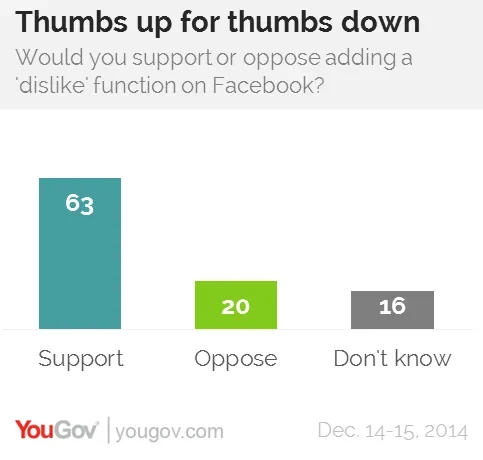Most British Facebook users would support adding a ‘dislike’ function to the social network – and often encounter content they dislike
Founder Mark Zuckerberg told an audience in California last week that Facebook had been considering adding a way to ‘dislike’ posts on its social media services. Facebook generates 4.5 billion ‘likes’ each day, but Zuckerberg said "one of things we've thought about for quite a while is what's the right way to make it so that people can easily express a broader range of emotions".

New YouGov research finds the idea of a dislike button on Facebook to be highly popular, with 63% of British people who currently use the social network in support. Only 20% oppose, but among 18-24 year-olds opposition rises to 32%.
One concern of Zuckerberg’s that comes with enabling negative sentiment is that the site would become a way of demeaning people’s posts. Revenue from advertising is a big factor, and brands could quickly look unpopular with dislikes on their pages. YouGov’s research finds that the dislike button could easily be triggered, as 64% of users say they often experience content they dislike.
Facebook has had problems with firms offering “fake like” services, where a brand can pay a company to generate thousands of likes via automated systems or humans paid a tiny sum for each click. The most likely option for broadening the range of sentiment expressible on the site is an extension of the like button, so that users can indicate how they feel, rather than a ‘black and white’ like and dislike function.










